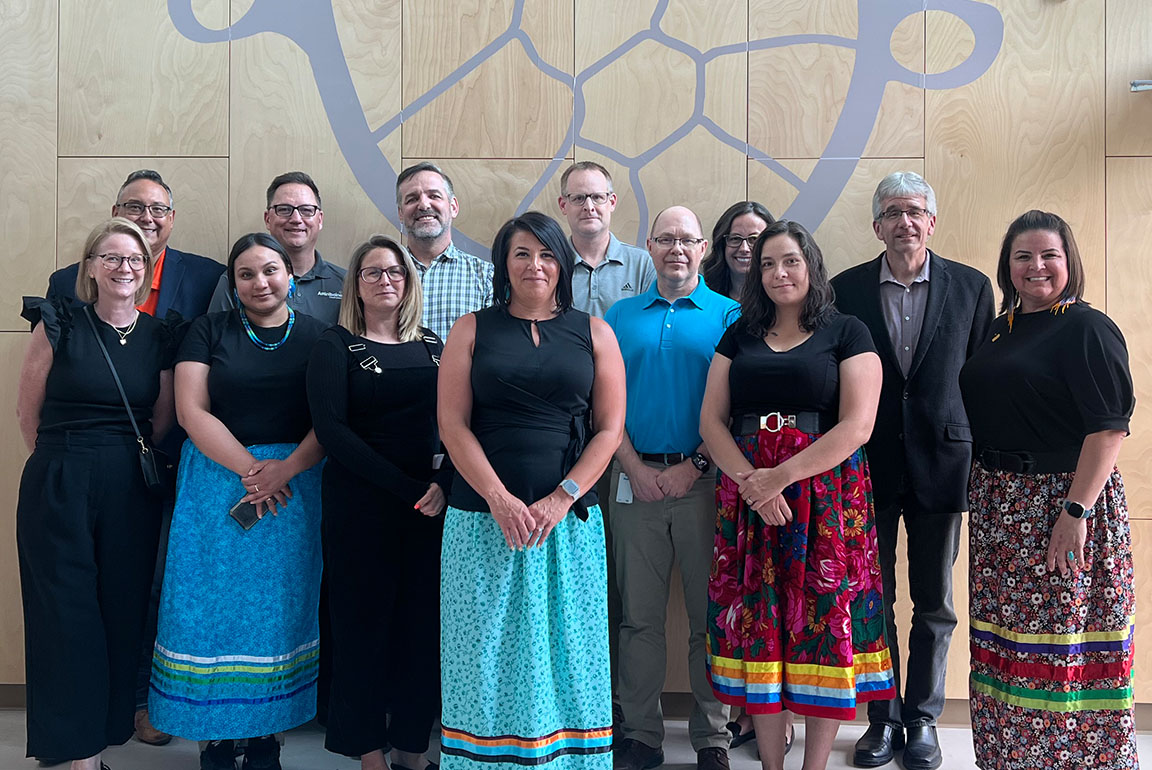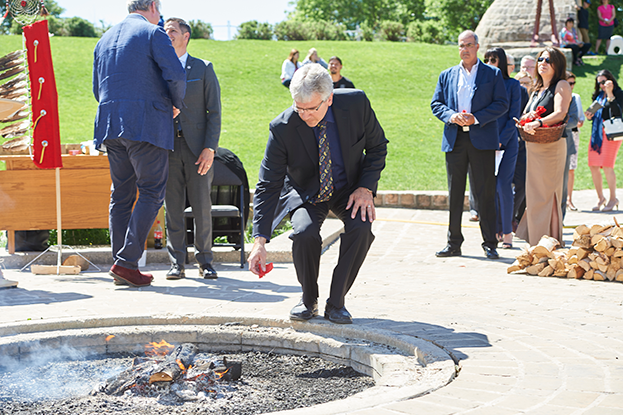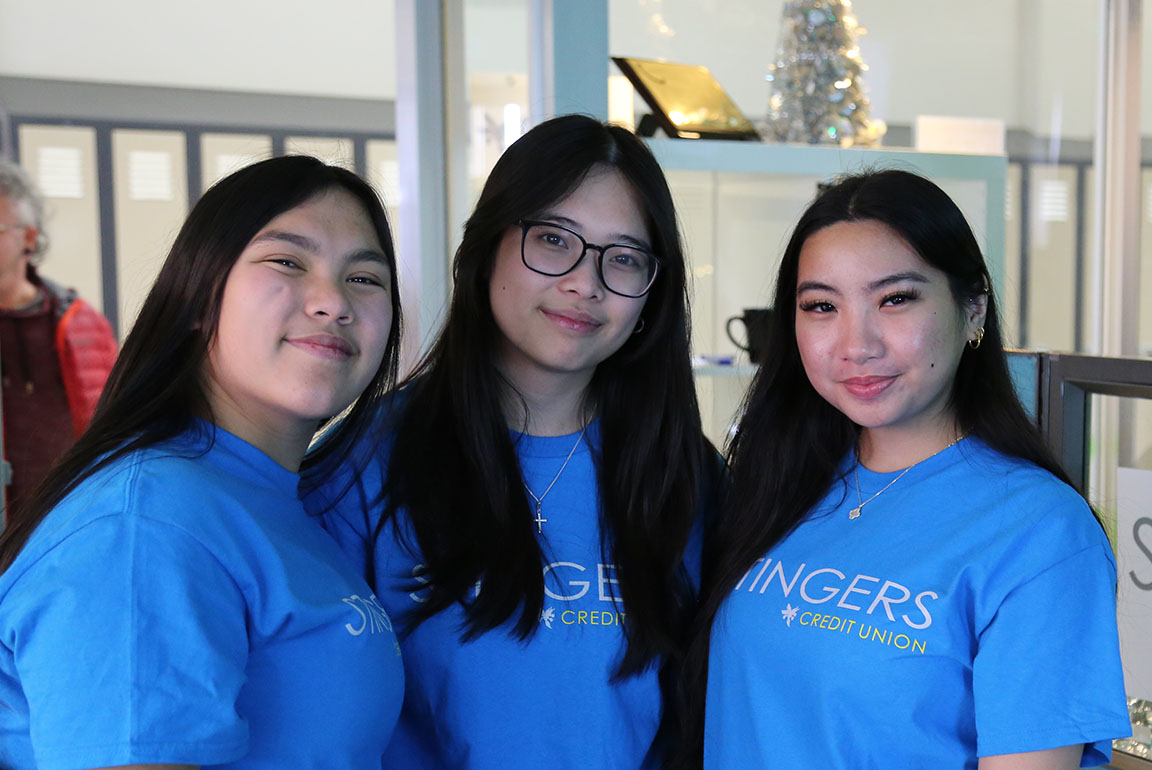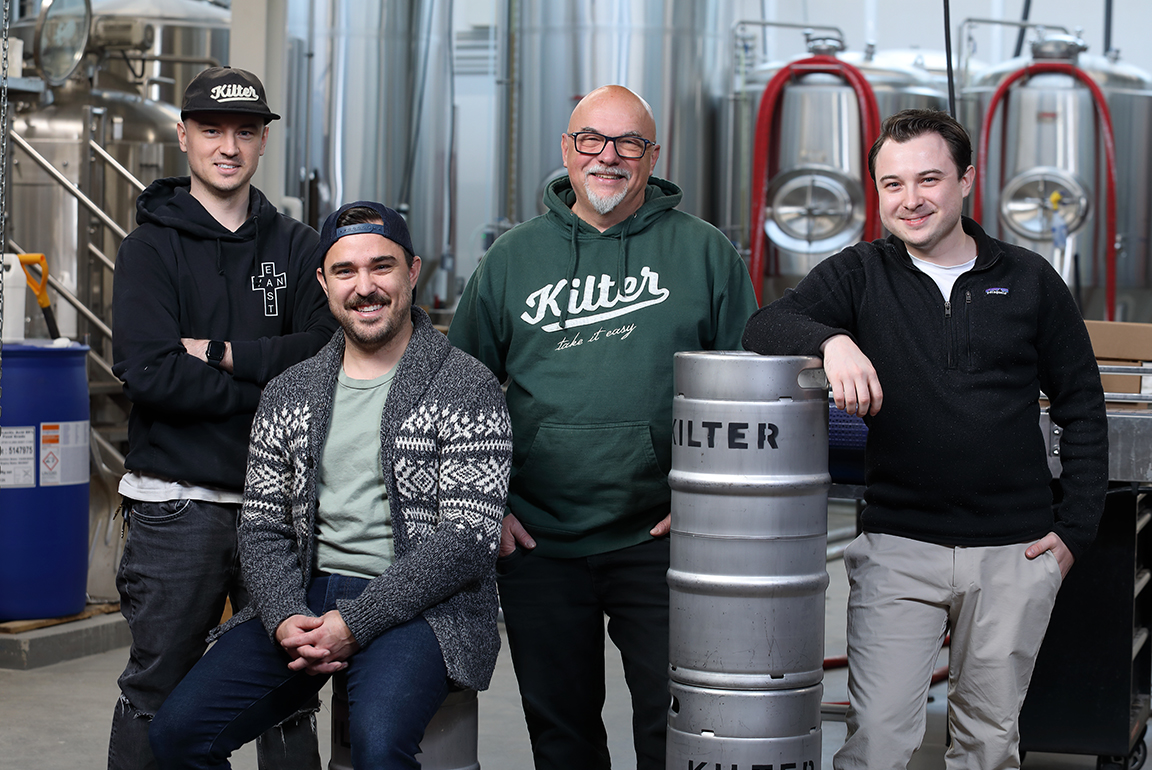Posted: June 29, 2023 by Asterisk Blog in Community stories, calls of action, Indigenous Leadership Circle, indigenous reconciliation, NDTR, Truth and Reconciliation
ACU’s Indigenous Leadership Circle approaches reconciliation journey one step at a time
ACU’s Indigenous Leadership Circle (ILC) — an idea brought forward by employees — is a groundbreaking initiative that serves as an example for other organizations looking to support their reconciliation journey.
The ILC is a group of dedicated ACU employees who self-identify as Indigenous to Turtle Island. The Constitution of Canada recognizes three groups of Indigenous Peoples: First Nations, Inuit and Métis. These three distinct Peoples have unique histories, languages, cultural practices and spiritual beliefs.
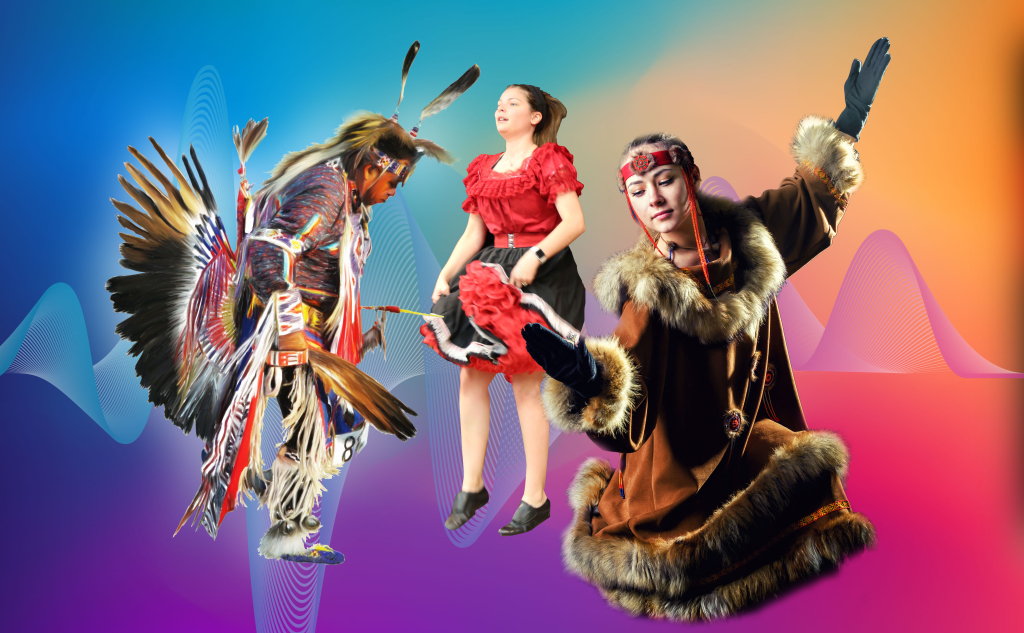
This group of employees leads ACU’s reconciliation journey by providing knowledge, awareness and resources to fellow employees, members and the community. It was born out of the unique perspective of an ACU employee who saw a chance to nurture reconciliation — and connection — by carving out space and time for meaningful touchpoints.

Kirstin Witwicki is a Financial Service Advisor at ACU. Several years ago she was selected to attend a class on Indigenous Women’s Teachings at The University of Winnipeg. While speaking with other students about incorporating more Indigenous teachings at educational institutions, she discovered that students in a local high school start their day with a traditional sharing circle for peer learning, support and encouragement.
She thought, “Why don’t we have a space like that in our workplaces?”
With the support and input of colleagues, Kirstin held the first meeting of the Indigenous Leadership Circle at ACU in January 2017. “It was the first of its kind that I know of,” she says. “Fortunately, other companies have caught on and are forming their own circles now.”
The only requirements for joining are that members self-identify as Indigenous to Turtle Island and are willing to create learning opportunities.
Creating a circle, not a committee
To Kirstin, the name is essential. “We are a circle. We are not a committee. We chose that verbiage because we rotate members acting as Chair. The circle has no hierarchy, mirroring Indigenous culture. Members vote on items and we need a majority to proceed, but we always strive for consensus for collective action. We are all equal, we all make decisions, we all lead.”
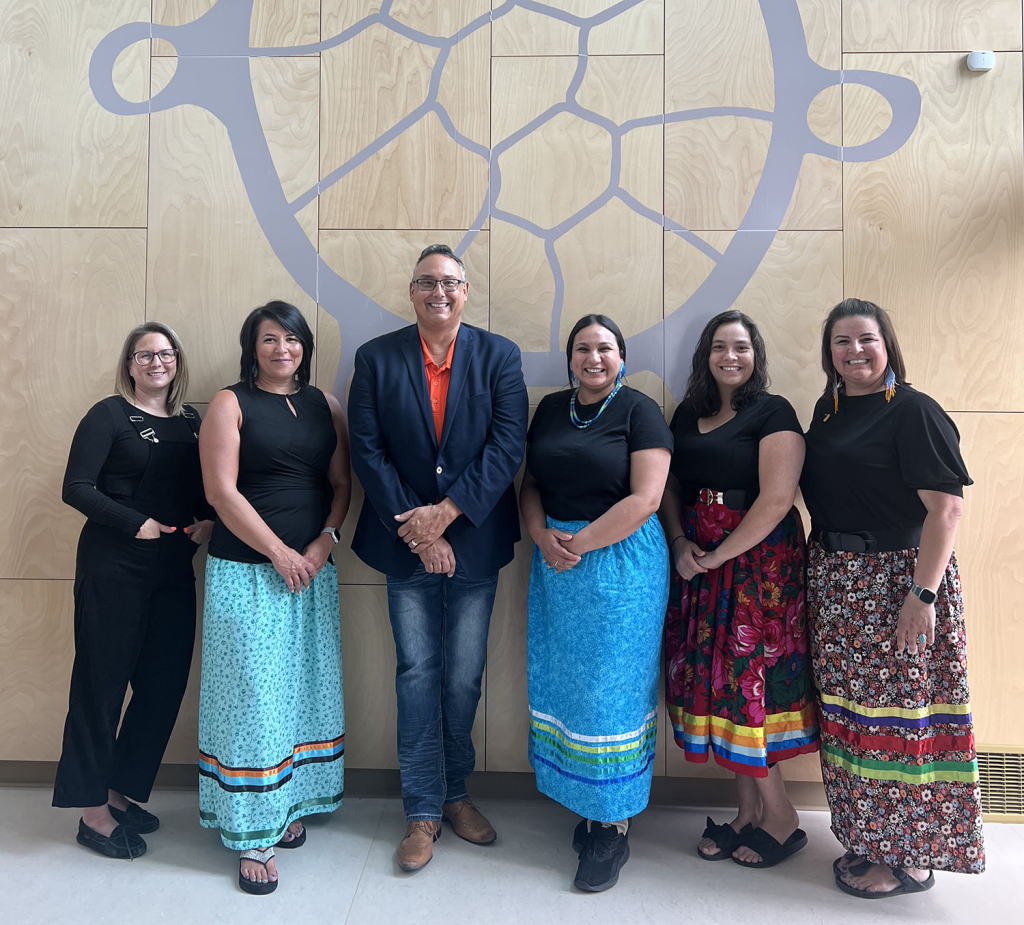
The ILC also works independently. ACU leadership supports their work, and provides the ILC with a budget and a mandate, but has no direct influence on their activities or agenda. ACU senior leaders attend nearly all ILC events, sending a strong message of this journey being a corporate priority.
Kirstin says without the support, buy-in, action and commitment taken by ACU, the ILC would not exist.
“It’s so incredibly important to acknowledge ACU’s commitment to diversity and inclusion, because the culture of an organization must already exist in order for a circle to thrive.”
The ILC’s goal is to strengthen relationships between teammates at ACU. “We aim to build better relationships between Indigenous and non-Indigenous employees as envisioned by the Truth and Reconciliation Commission. We do that by organizing and hosting educational events.” It also helps to build mutual respect.
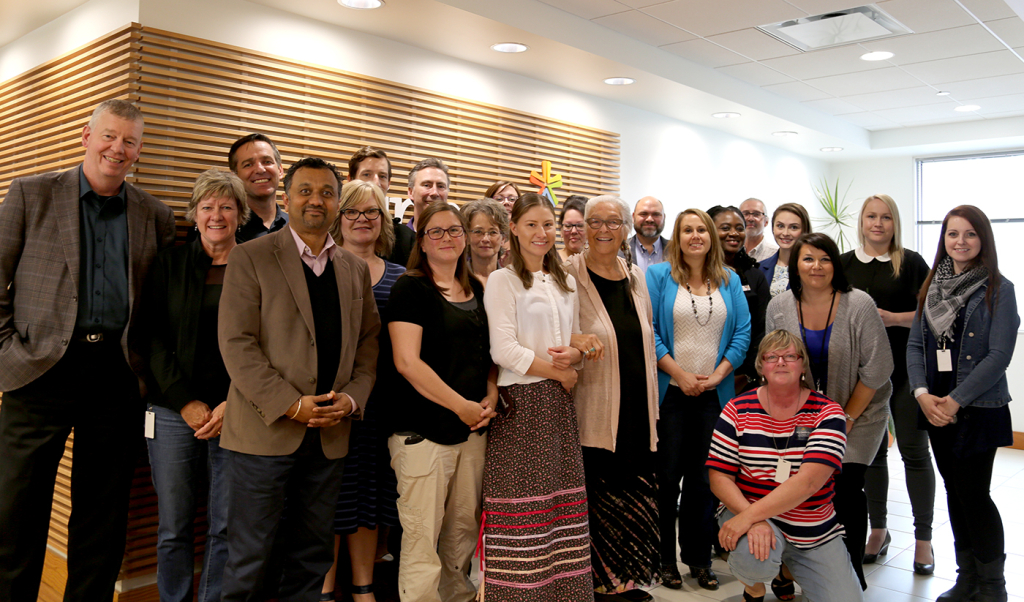
The ILC held its first Feast and Teach in June of 2017—a play on ‘Lunch and Learn’—where Indigenous Elder Mae Louise Campbell spoke to 40 ACU employees. Their enthusiastic interest and response encouraged the ILC to build on those first efforts. They’ve since hosted several Feast and Teach events with Elders and knowledge keepers who cover a variety of Indigenous topics and teachings—with more planned for the future.
Building a bridge through educational events
A cornerstone of the ILC is activities that promote learning and connection. Events are focused on Indigenous history and culture.
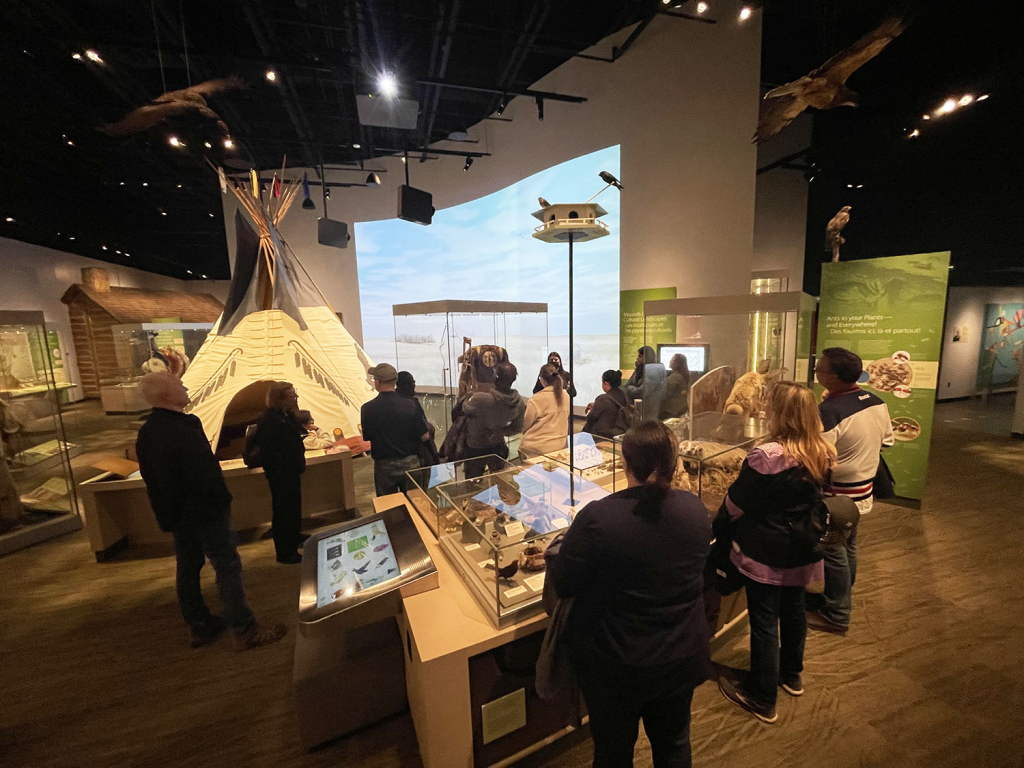
Kirstin promises that 2023 is going to be an event-filled year:
- Participating in the Rights and Indigenous Peoples in Canada program at the Canadian Human Rights Museum, which introduces Indigenous worldviews, laws and perspectives on rights, as well as on historic and contemporary violations of Indigenous rights and the legacy of colonialism and genocide.
- A Treaty 1 Tour at the Manitoba Museum, which examines the history and contemporary relevance of those living on Treaty 1 territory through artifacts, exhibitions and stories.
- The KAIROS Blanket Exercise, is an experiential learning tool to narrate the historic and contemporary relationship between Indigenous and non-Indigenous peoples.
- Bear Clan walks, which are patrols led by locals that provide personal security in Winnipeg neighbourhoods in a non-threatening, non-violent and supportive way.
- Activities on Orange Shirt Day that facilitate education and knowledge of residential schools and reconciliation.
- Participation in the Métis Feast and Teach program, which includes a representative from the Manitoba Metis Federation discussing Metis identity.
“We know that not everyone can come to all of the events,” recognizes Kiristin. “There are self-guided learning opportunities as well, and we have a lending library where employees can take out Indigenous books.”
Offering a variety of events has helped the ILC reach many different people. “We’re now taking that next step of offering opportunities to members directly.”
One such effort is supporting the Moose Hide Campaign. Wearing the moose hide pin “signifies a commitment to honour, respect and protect the women and children in your life and speak out against gender-based and domestic violence.” In 2023, ACU began to make moose hide pins available to members of the credit union at branches.
Starting your own Indigenous Leadership Circle
One of the City of Winnipeg’s key actions in supporting reconciliation was creating Winnipeg’s Indigenous Accord, “so that organizations can come together as we continue to learn, achieve greater understanding, and find a role in our shared journey of reconciliation,” according to the Accord’s Partner Goals & Progress Report.
One way that organizations can help is by creating their own Indigenous Leadership Circle, leveraging existing tools. Kirstin says the most important factor is authenticity. An ILC must be employee-led, with Indigenous employees taking the reins.
At the same time, an organization must commit to making an investment over the long term, which requires more than an annual budget for employee-led events. For example, ACU offers time off during work hours so employees can attend sessions, invests in employee education and donates resources to community events.
Are you an employee trying to start an ILC? Here are some key questions to ask as you get started on this journey:
- Is your organization committed to reconciliation?
- Have you consulted/recruited Indigenous employees about participation?
- Have you defined a mission for your Indigenous Leadership Circle?
- Do you have support and buy-in from executive leadership to support the work, particularly during work hours?
- Do you have an annual budget and learning journey plan?
Is your organization interested in starting an ILC? To get started:
- Become a partner in Winnipeg’s Indigenous Accord.
- Get commitment from all of your managers.
- Commit to a call to action from the Truth and Reconciliation Commission.
- Commit to adding the ILC to your strategic plan.
- Decide on a budget and learning journey plan.
If your organization is supportive and your fellow Indigenous employees are committed, you’re already halfway there—because if ACU’s experience is any indication, the enthusiasm, support and desire to learn are already there among your non-Indigenous employees, too.

If you’d like to make reconciliation a part of your journey, we invite you to read more about ACU’s reconciliation efforts, and access resources to help.
Up Next
Community stories
Read more ›
Celebrating the 10th anniversary of student-run credit union
Just over 10 years ago, a survey circulated at Winnipeg’s Technical Vocational High School. The results showed that students at the school, commonly known as Tec Voc, felt short-changed—they were…
Borrow, Business growth, Community stories
Read more ›
Kilter Brewing Co. serves up craft beer and community connection in St. Boniface
Deep in the heart of St. Boniface, Kilter Brewing Company is a hidden treasure—an oasis for Winnipeggers to escape their day-to-day routines, enjoy craft beer and connect with their community….
Borrow, General, Money tips
Read more ›
How to use a mortgage calculator to budget better
Learn how to use ACU’s mortgage calculator to figure out how much mortgage you can afford, and what budget you should set before you start house hunting. A mortgage lender…
